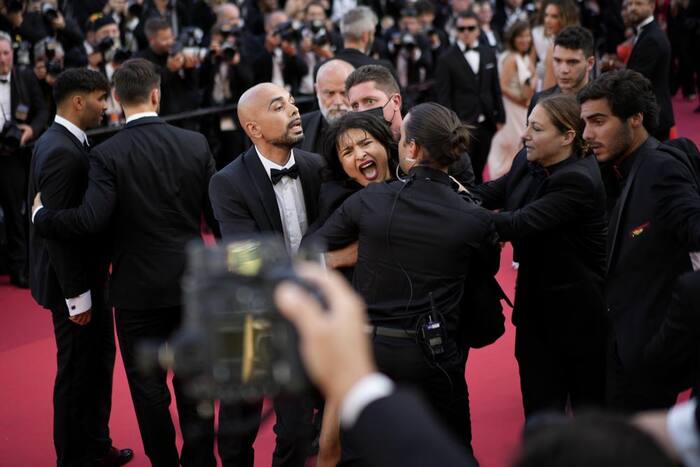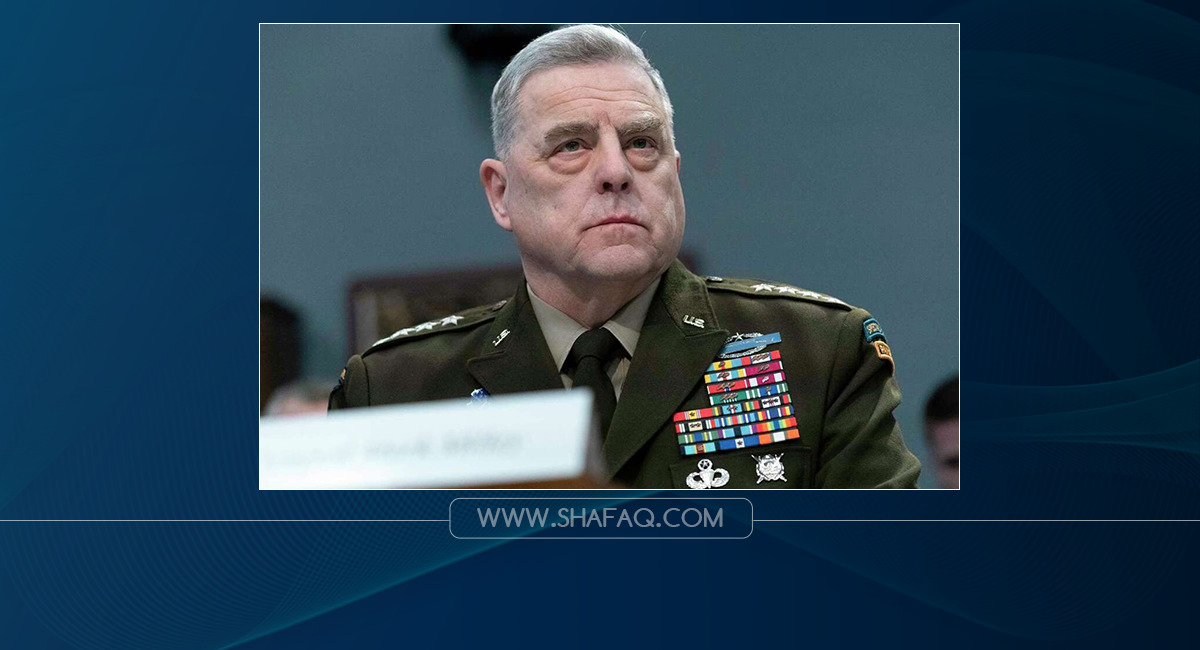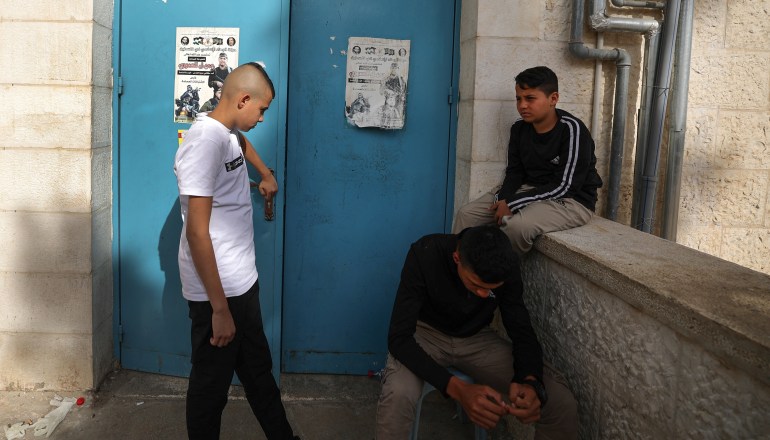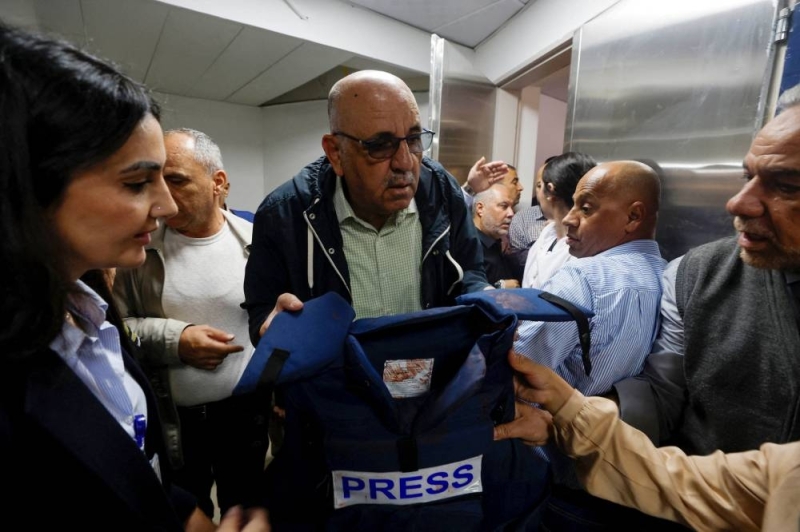The woman also appeared to have blood-red paint over her lower back and legs with the word 'SCUM' written on her back. The incident happened on the red carpet at the premiere of George Miller's 'Three Thousand Years Of Longing', starring Idris Elba and Tilda Swinton.
Published: May 21, 2022
By Analiza Pathak

Cannes 2022: A woman protesting sexual violence in Ukraine was removed from the Cannes Film Festival red carpet during the world premiere of George Miller’s “Three Thousand Years of Longing.” Video footage from the carpet saw a woman trying to crash the event while screaming at the top of her lungs. The unidentified woman tore off her clothes during the film’s red carpet procession to reveal the message “Stop raping us” written across her torso next to the blue and yellow colors of the Ukraine flag. Red was also painted on her legs and groin. While she yelled “Don’t rape us!” security quickly encircled her and took her off the red carpet. The topless woman had the word “scum” written on her lower back.
Since the beginning of Russia’s military operation in Ukraine, there have been numerous reports of Russian soldiers raping Ukrainian civilians.
Russia’s war in Ukraine has often been in the spotlight at this year’s Cannes festival, which is screening several films from Ukrainian filmmakers. The festival barred Russians with ties to the Kremlin from attending.
Earlier, Ukrainian President Ukrainian President Volodymyr Zelenskyy delivered a surprise address Tuesday to open the festival.
Activist Removed From Cannes Red Carpet Following Naked Protest Against Sexual Violence In Ukraine
By Andreas Wiseman
May 20, 2022

An activist protesting sexual violence against women in Ukraine has been removed tonight from the Cannes red carpet for George Miller’s Three Thousand Years Of Longing.
The naked and screaming woman had paint daubed on her body in the colours of the Ukrainian flag and the words ‘Stop Raping Us’ across her chest and stomach. She had the word ‘SCUM’ written on her back.
There is mounting evidence of summary executions, rape and torture carried out by Russian forces in Ukraine.
The French activist group SCUM has just posted an explanation on Twitter.
SCUM was a radical feminist manifesto published in the 1960s. However, the above Twitter handle only came into existence last month.
https://twitter.com/RadicalWitch2/status/1494304385001795584The SCUM Manifesto is essential radical feminist reading. 17 Feb 2022 ...
The dramatic episode took place as the red carpet unfolded for the night’s big premiere: George Miller’s Three Thousand Years Of Longing, starring Idris Elba and Tilda Swinton. The director and stars were in attendance.
It is understood the woman took to the carpet then hastily removed her clothes and began screaming before she was swiftly removed by security.
The festival has taken place amid much discussion about the conflict in Ukraine. Official Russian delegations and journalists from Putin-supporting papers are not welcome at the event but the festival did yesterday debut a movie backed by sanctioned Russian oligarch Roman Abramovich.
Cannes is no stranger to red carpet protests. In 2018, 82 women protested gender inequality in the film industry in front of the Palais. A few days later there was also an anti-racism protest on the carpet.








:quality(70):focal(3281x2612:3291x2622)/cloudfront-eu-central-1.images.arcpublishing.com/thenational/L3TYODNILSVQUML6IQTQIMTB4A.jpg)
:quality(70)/cloudfront-eu-central-1.images.arcpublishing.com/thenational/BXJVCCX37RX57WMRHBIMONQ4FE.jpg)
:quality(70)/cloudfront-eu-central-1.images.arcpublishing.com/thenational/AINQGIEMWIYK777WIZJO5W22PQ.jpg)
:quality(70)/cloudfront-eu-central-1.images.arcpublishing.com/thenational/2N565GW53K7BVVCXLTJNW4DEYI.jpg)
:quality(70)/cloudfront-eu-central-1.images.arcpublishing.com/thenational/HCE4VT57A2QBIEUQGQRKFN2GTU.jpg)
:quality(70)/cloudfront-eu-central-1.images.arcpublishing.com/thenational/XKDZUAGE6NNUFHF74RTIXHHDMA.jpg)
:quality(70)/cloudfront-eu-central-1.images.arcpublishing.com/thenational/NERXEY4SD6FFHTO4S7SJUTPOD4.jpg)
:quality(70)/cloudfront-eu-central-1.images.arcpublishing.com/thenational/AINQGIEMWIYK777WIZJO5W22PQ.jpg)
:quality(70)/cloudfront-eu-central-1.images.arcpublishing.com/thenational/L7H3QO4UD2ECPWOBGTD7VO7D6E.jpg)
:quality(70)/cloudfront-eu-central-1.images.arcpublishing.com/thenational/UU5IR2ANVHV2YRSJSVUS7JJ6ME.jpg)
:quality(70)/cloudfront-eu-central-1.images.arcpublishing.com/thenational/MLTVCR7QDKWRFRKNBNJDOSFYXU.jpg)
:quality(70)/cloudfront-eu-central-1.images.arcpublishing.com/thenational/XAU4RVS6SOD6FZ3Z26IDIVTCIE.jpg)
